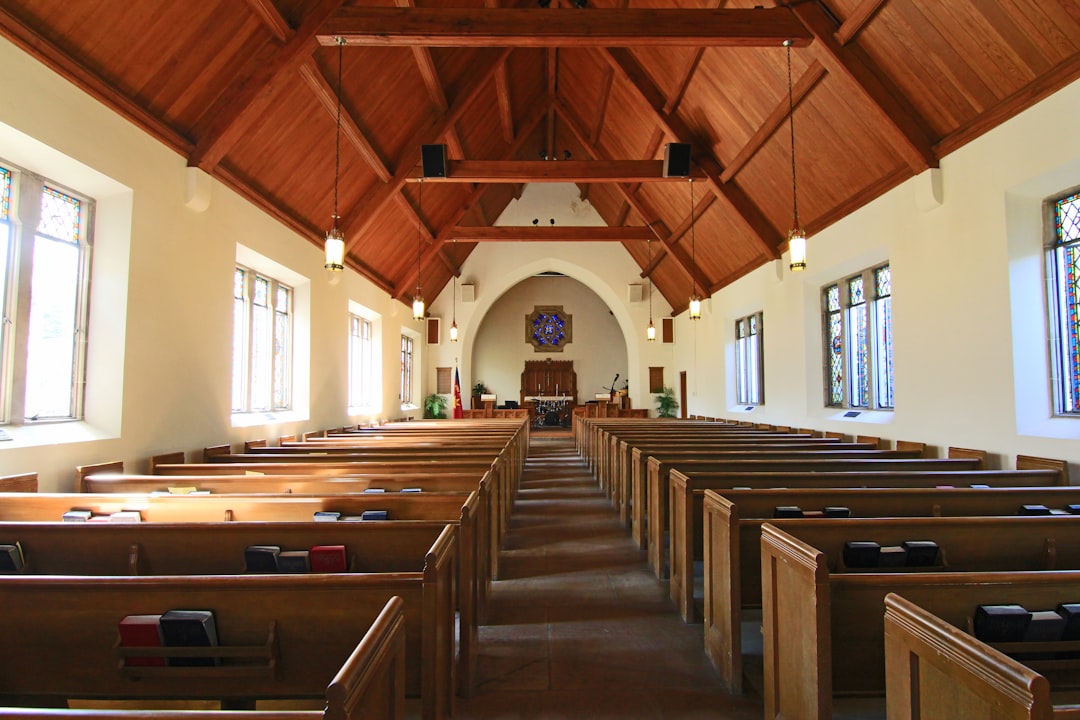Victims of clergy sexual or physical abuse in St. Louis, MO, can seek justice through specialized clergy abuse law firms. These firms navigate complex legal procedures, offer compassionate support, and ensure fair compensation while holding religious figures accountable. Missouri law empowers victims to pursue civil damage claims against priests and churches, with successful cases led by St. Louis MO clergy abuse law firms prompting institutional reforms.
In Missouri, particularly within the vibrant city of St. Louis, victims of priest misconduct face complex challenges when seeking justice and compensation. This article delves into the intricate web of legal options available to individuals affected by clerical abuse. We explore Missouri’s specific clergy abuse laws, focusing on civil damage claims against priests, and the pivotal role that law firms specializing in these cases play. Understanding the historical perspective on priest misconduct suits in St. Louis MO is crucial for navigating this sensitive legal process.
Understanding Missouri's Clergy Abuse Laws

In Missouri, understanding the clergy abuse laws is crucial for victims seeking justice and compensation for past misconduct by religious figures. The state has specific legislation in place to address civil damage claims related to sexual or physical abuse committed by clergy members. These laws provide a framework for individuals who have suffered harm due to the actions of priests, bishops, or other religious leaders.
Victims of clerical abuse in St. Louis, MO, can turn to experienced clergy abuse law firms for support and guidance. These firms specialize in navigating the complexities of Missouri’s clergy abuse laws, ensuring that victims’ rights are protected and they receive fair compensation. The legal process involves filing a civil lawsuit against the offending priest or church entity, holding them accountable and providing a means of healing for the survivors.
Civil Damage Claims Against Priests in St. Louis

In St. Louis, Missouri, individuals who have suffered from clergy abuse at the hands of priests can explore legal avenues to seek justice and compensation through civil damage claims. Many victims turn to experienced clergy abuse law firms in St. Louis MO for assistance in navigating this complex process. These specialized legal teams are equipped to handle cases involving sexual misconduct, emotional abuse, or any other forms of wrongdoings committed by priests within the Catholic Church or other religious organizations.
The specific laws and procedures regarding civil damage claims against priests can vary significantly from one state to another. In Missouri, victims have a limited time frame—often ranging from 2 to 8 years—to file a lawsuit after they become aware of the abuse. It’s crucial for those affected by priest misconduct to act promptly and reach out to clergy abuse law firms in St. Louis MO to understand their legal rights and options for seeking redress. These firms offer compassionate support while aggressively pursuing compensation on behalf of clients, ensuring that justice is served.
The Role of Law Firms in Clerical Misconduct Cases

When a client comes forward with a claim against a priest or clerical figure for misconduct, especially in cases involving civil damage claims for clergy abuse in St. Louis, MO, the role of a specialized law firm becomes pivotal. These law firms have extensive experience dealing with sensitive and complex cases related to religious institutions. They are equipped to navigate the intricate legal landscape surrounding clergy abuse, ensuring clients receive fair compensation while upholding their rights.
The expertise lies in understanding the unique dynamics of these cases, which often involve power imbalances and emotional trauma. St. Louis clergy abuse law firms employ strategies tailored to handle such situations discreetly and effectively. They work closely with victims to build strong cases, gathering evidence, conducting interviews, and providing legal counsel throughout the process. This support is invaluable for clients seeking justice and closure.
Navigating Legal Process for Victims of St. Louis MO Clergy Abuse

Navigating the legal process after experiencing clergy abuse can be a daunting task, but victims in St. Louis, MO, have options. Many turn to specialized clergy abuse law firms for guidance and representation due to the complex nature of these cases. These firms understand the emotional toll and unique challenges that arise from such situations, offering sensitive support while guiding clients through legal procedures.
In Missouri, victims of clergy misconduct have a right to seek justice and compensation. The first step is often identifying the appropriate legal strategy. Some cases may involve filing civil damage claims against the offending priest or church entity. Skilled attorneys at St. Louis MO clergy abuse law firms can help victims understand their rights, collect relevant evidence, and build a strong case. This process requires careful documentation of abusive behaviors and their impact on the victim’s life to ensure a successful legal outcome.
Historical Perspective on Missouri Priest Misconduct Suits

In the context of clergy abuse, Missouri has witnessed a significant number of civil damage claims against priests and the Catholic Church over the years. Historically, such suits in St. Louis and across the state have shed light on widespread misconduct within the clergy, particularly sexual abuse of minors. The first high-profile cases in the 1980s and 1990s sparked a national conversation about the failure of religious institutions to protect vulnerable individuals.
These legal actions, spearheaded by clergy abuse law firms in St. Louis MO, have not only provided justice for victims but also prompted the Catholic Church to implement stricter policies and guidelines to prevent future abuses. The historical perspective highlights the evolving understanding of the severity and impact of such misconduct, driving a continued need for transparency, accountability, and support for survivors.





